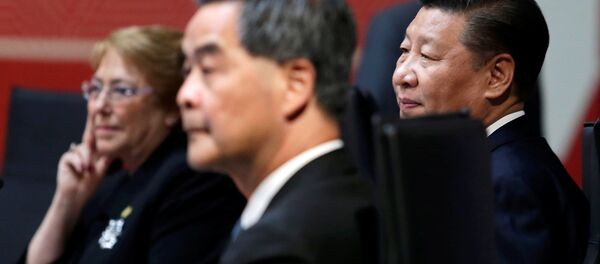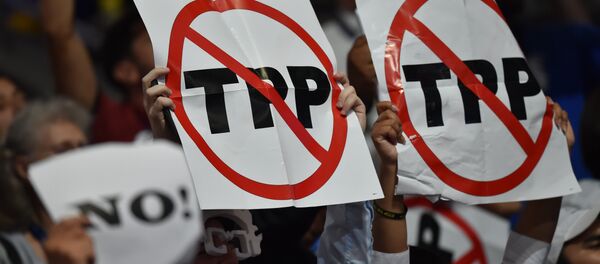“The overtures that the Chinese leader Xi Jinping made in Lima at the APEC summit certainly suggest that China is going to woo its Asian neighbors into joining its own free trade project, which could result in a loss of influence for the United States in the region,” University of Ottawa School of Public and International Affairs Professor Patrick Leblond said on Tuesday.
The TPP, Leblond continued, had a geostrategic “raison d’être” which was to bring its Asian members closer to the United States geopolitically and away from China.
“The hope was that China would eventually be compelled to join TPP, on US terms, rather than the other way around, whereby China would go ahead and be at the forefront of an Asia-Pacific FTA [free trade agreement] that the United States would have to adhere to on Chinese terms, assuming that the US would ever want to do so,” Leblond explained.
In terms of how the US move will affect other TPP members, Leblond said there is surely an important opportunity cost with respect to smaller states no longer having access to the US markets.
Countries like Canada however will look to bilateral deals to fill any minor benefits that would have been derived from the TPP agreement, Leblond added.
“The gains from free trade with other Asian TTP members, bar Japan, were always going to be small,” Leblond stated. “One should not forget that Canada already has a number of free-trade agreements with Latin American TPP members. Those agreements will continue operating if TPP does not enter into force.”
The US withdrawal from TPP will have limited impact on Canadian business and the economy, Leblond claimed, assuming that Ottawa and Tokyo are able to resume and complete the negotiations of a free trade agreement, which they had undertaken before they both decided to join the TPP.
Canada might even have an opportunity to modernize some of these free trade agreements, including one with Chile that dates back to 1997, Leblond suggested.
Georgetown University Law Center Visiting Professor David Gantz told Sputnik that ending US involvement with TPP may push parties into the hands of Beijing.
“In the longer term, by encouraging the TPP Parties to conclude free trade agreements with China, such as the Regional Comprehensive Economic Partnership, instead of with the US, rejection of TPP will likely lead to a reduction of US manufacturing employment,” Gantz argued.
The TPP would eliminate thousands of import tariffs imposed by countries with rapidly expanding economies such as Malaysia, Vietnam, and Japan, Gantz claimed, while failing to approve it will not bring manufacturing jobs back to the United States.
The TPP would join the United States with 11 Pacific Rim nations in a deal to lower tariffs and other trade barriers on thousands of goods and services. The participant countries in the TPP account for about 40 percent of the global economy.
TPP critics have argued that the trade deal will only benefit multinational corporations while eroding the US manufacturing sector.
Critics claim the agreement will weaken safety regulations and undermine labor, environmental and human rights.



